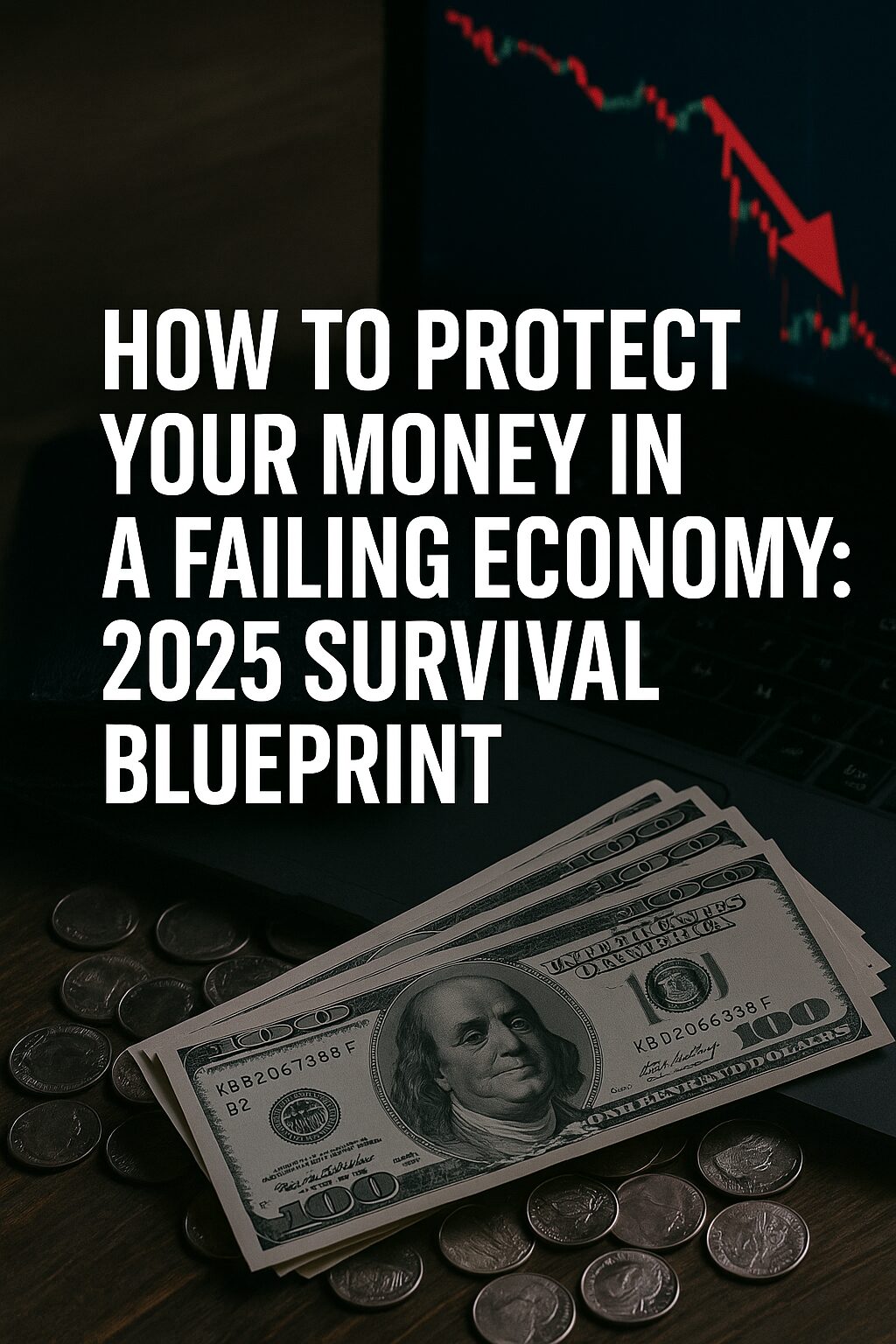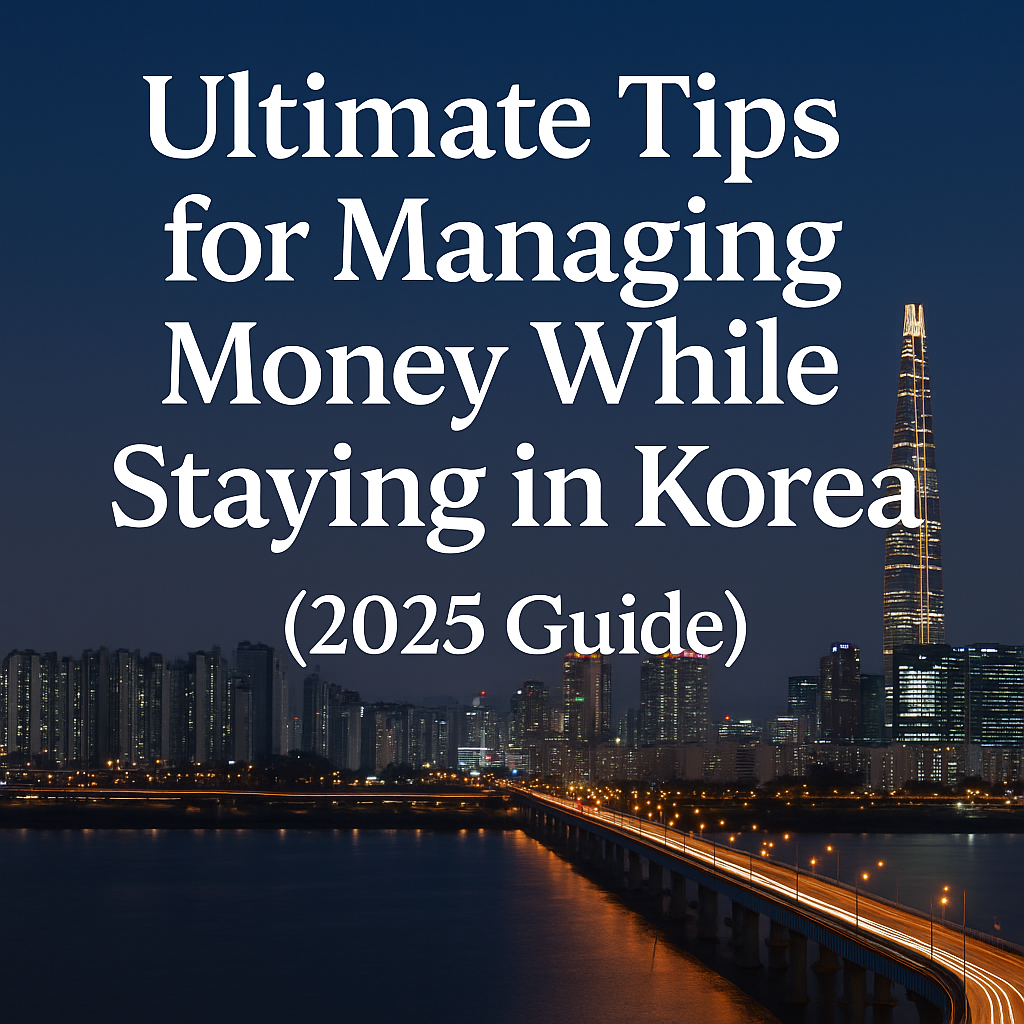Introduction
The global economy is shifting fast. Inflation spikes, collapsing currencies, volatile stock markets, and geopolitical conflicts have left millions of people asking the same question: “How do I protect my money?” This is not about doom-and-gloom theories or academic advice. This is about practical, real-life tactics you can implement today to ensure your money survives—and grows—even in a failing economy.
In this 2025 blueprint, you’ll learn specific, actionable steps to protect your income, savings, and future regardless of where you live or how much money you currently have. Whether you’re a salaried worker, a freelancer, or running a small business, this guide is designed for real people living in real economic conditions.
1. Move Your Cash Out of Weak Currencies
What to do:
- If your national currency is rapidly losing value (e.g., due to inflation or political instability), move a portion of your savings into a more stable foreign currency like USD, EUR, or CHF.
- Use multi-currency accounts (Wise, Revolut, or a Swiss bank) to hold cash in safer denominations.
- Avoid holding large amounts of physical cash at home or in one country.
Why it matters:
- Currency devaluation quietly destroys purchasing power. You might still have $10,000, but what it buys today could be half of what it bought a year ago.
Real-life tactic:
“In Argentina, I kept losing money just by saving in pesos. I opened a USD multi-currency account via Wise, and now I move funds instantly based on currency fluctuations.” — Lucia, freelancer
2. Diversify Income Streams — Now
What to do:
- Don’t rely solely on your job. Build at least one digital income stream (affiliate marketing, print-on-demand, online consulting, or investing in digital assets).
- Even $300–500 a month in side income can offset inflation or emergencies.
Why it matters:
- Job markets become unstable during economic downturns. A second (or third) income stream gives you leverage and breathing room.
Real-life tactic:
“I work full-time, but I created a niche Substack newsletter in 2024. It brings in $700/month now, covering my groceries and utilities.”
3. Convert Liabilities Into Assets
What to do:
- Review everything you’re paying for: car, subscriptions, gadgets.
- Ask: Can this be turned into an income stream?
- Rent your car when not in use (Turo)
- Rent a room (Airbnb)
- Sell unused tech or rent it out
Why it matters:
- During economic decline, owning depreciating liabilities is dangerous. Assets protect you; liabilities drain you.
Real-life tactic:
“I converted my old DSLR camera into a rental income stream for beginner YouTubers in my city. Now it earns $120/month instead of collecting dust.”
4. Keep a Hard Assets Strategy
What to do:
- Buy things that retain value: gold, silver, real estate, collectible items with real resale markets.
- Consider a 10–20% allocation of your wealth into physical assets.
Why it matters:
- Fiat currency loses value. Hard assets don’t disappear in a crisis.
- Gold and silver can be sold or traded globally even when banks collapse.
Real-life tactic:
“I started buying small silver bars monthly instead of saving in my bank. It’s now a $4,000 stash I can liquidate anytime.”
5. Automate Emergency Savings
What to do:
- Use automatic savings tools (like Digit, Qapital, or bank auto-transfer) to build a 3–6 month emergency fund.
- Keep it in a stable, low-risk currency or split across multiple currencies.
Why it matters:
- In a crisis, cash flow is survival. You need access to funds without relying on debt or delayed income.
Real-life tactic:
“Every Friday, $50 automatically goes to a hidden USD savings account. I don’t feel it—but it built me $2,000 in 9 months.”
6. Learn and Apply Geoarbitrage
What to do:
- Geoarbitrage = living in a cheaper location while earning in a stronger currency.
- If possible, shift your base (even temporarily) to a country with lower cost of living.
Why it matters:
- It can multiply your purchasing power and reduce monthly expenses by 30–70%.
Real-life tactic:
“I moved from London to Lisbon and kept my UK freelance clients. Same income, but my rent dropped from $2,300 to $780.”
7. Stop Thinking Short-Term
What to do:
- Reprogram your financial mindset. Stop reacting to daily headlines. Think in 5–10 year horizons.
- Build systems: automated savings, long-term investments, minimalism.
Why it matters:
- In chaotic economies, short-term thinking leads to fear-based decisions.
- Those who build resilient systems will survive and thrive.
Real-life tactic:
“I stopped chasing crypto trends and built a boring ETF portfolio + emergency fund. In 2 years, my net worth grew more than the 5 years before that.”
Conclusion: Your 2025 Action Plan
Protecting your money in a failing economy isn’t about being rich or lucky. It’s about being strategic, diversified, and practical. Here’s your 7-step blueprint:
- Switch from weak to strong currencies
- Create at least one extra income stream
- Turn liabilities into money-making tools
- Hold physical assets that preserve value
- Build emergency savings with automation
- Use geoarbitrage to multiply cash flow
- Build long-term systems, not short-term reactions
Start with one tactic today. You don’t need to do everything at once—but you can’t afford to do nothing.
Let this be your survival playbook for 2025—and your launchpad for long-term financial freedom.

